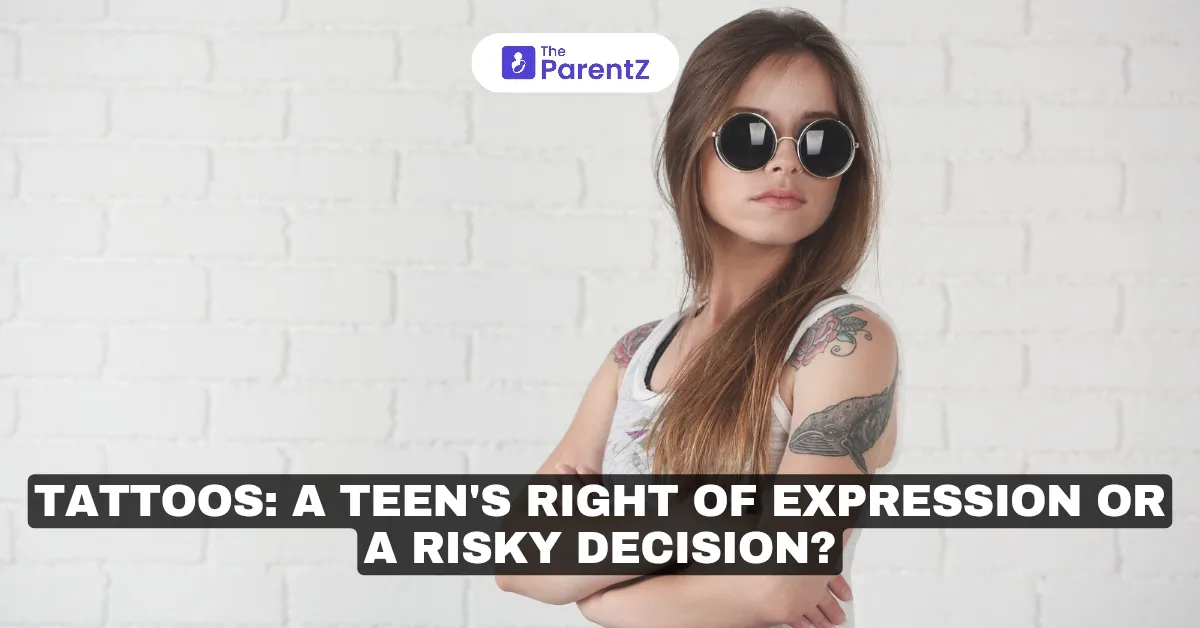Tattoos. The word itself often sparks a whirlwind of emotions, especially when teens bring it up. For teens, it feels like the ultimate form of self-expression, a way to permanently showcase their passions, beliefs, or simply a cool design. For parents, it often triggers a mix of concern, confusion, and maybe even a little panic. It's a conversation that often needs navigating with sensitivity and understanding.
Finding Common Ground
Let's be real; the teenage years are a rollercoaster. It's a time of discovering who you are, what you believe in, and where you fit in the world. Everything feels intense, from friendships to first crushes, and the desire to express this evolving identity is powerful. Tattoos, with their permanent nature, can seem like the perfect way to make a statement, to declare something to the world. Maybe it's a small symbol representing a favorite band, a quote that resonates deeply, or a piece of art they connect with. For teens, it's not just about the ink; it's about taking ownership of their bodies and their stories.
But here's where the parent perspective comes in, and rightfully so. Tattoos are permanent, and that's a big deal. Teen brains are still developing, particularly the prefrontal cortex, which is responsible for decision-making and long-term planning. What seems incredibly meaningful at 16 might feel completely different at 26. Parents worry about potential regrets, the impact on future job prospects, and the potential health risks associated with tattoos, especially if done in unsanitary conditions. These are all valid concerns.
So, how can teens and parents bridge this gap and have a productive conversation about tattoos? It begins with open communication and a willingness to listen to each other.
For Teens: Navigating the Ink
- Do your research: Don't just jump into getting a tattoo because your friends are doing it. Think carefully about the design, its placement, and its meaning. Will it still hold the same significance in five or ten years? Research reputable tattoo artists who prioritize hygiene and safety. Understand the potential risks involved, including allergies, infections, and scarring.
- Consider alternatives: If you're not completely sure about a permanent tattoo, explore temporary options like henna or temporary tattoos. This can be a great way to experiment with designs and placements before making a lifelong commitment.
- Talk to your parents: Even if you anticipate resistance, try to have an open and honest conversation with your parents. Explain your reasoning behind wanting a tattoo and address their concerns. Be prepared to compromise and consider their perspective. Maybe you can agree on a smaller, less visible tattoo or postpone it until you're older.
- Think about the future: While it's important to express yourself in the present, it's also wise to consider the future. Some professions have strict policies regarding visible tattoos. Think about your career aspirations and how a tattoo might impact them.
For Parents: Understanding and Guiding
- Listen without judgment: Try to understand your teen's desire for a tattoo instead of immediately dismissing it. Ask them about the meaning behind the design and why it's important to them. Creating a safe space for open communication is crucial.
- Educate, don't dictate: Instead of simply forbidding tattoos, provide your teen with accurate information about the risks and responsibilities involved. Discuss the importance of choosing a reputable tattoo artist and following proper aftercare procedures.
- Find common ground: Try to find a middle ground that works for both of you. Maybe you can agree on waiting until they're older or allowing a smaller, less visible tattoo. Compromise is key to navigating this sensitive topic.
- Remember, it's about expression: For teens, tattoos are often about expressing their individuality and asserting their independence. Try to see it from their perspective and understand that it's a part of their journey towards self-discovery.
Conclusion
Ultimately, the decision to get a tattoo is a personal one. While parents can offer guidance and support, teens need to be empowered to make informed choices about their own bodies. By fostering open communication, mutual respect, and a willingness to understand each other's perspectives, teens and parents can navigate this complex issue together. It's not just about the ink; it's about building a relationship based on trust and understanding, which is far more permanent and meaningful than any tattoo.





Be the first one to comment on this story.